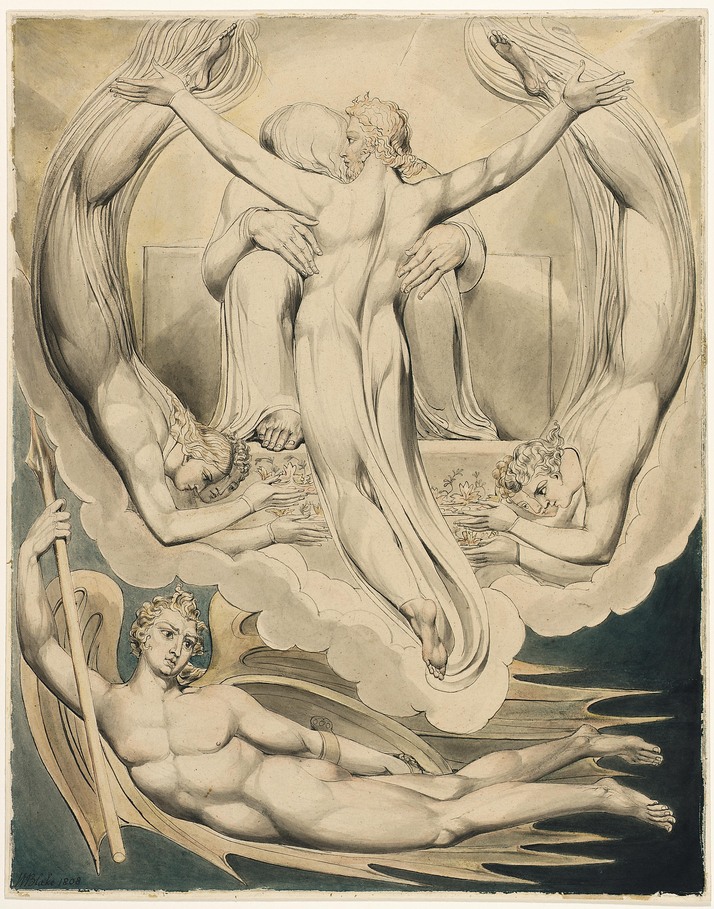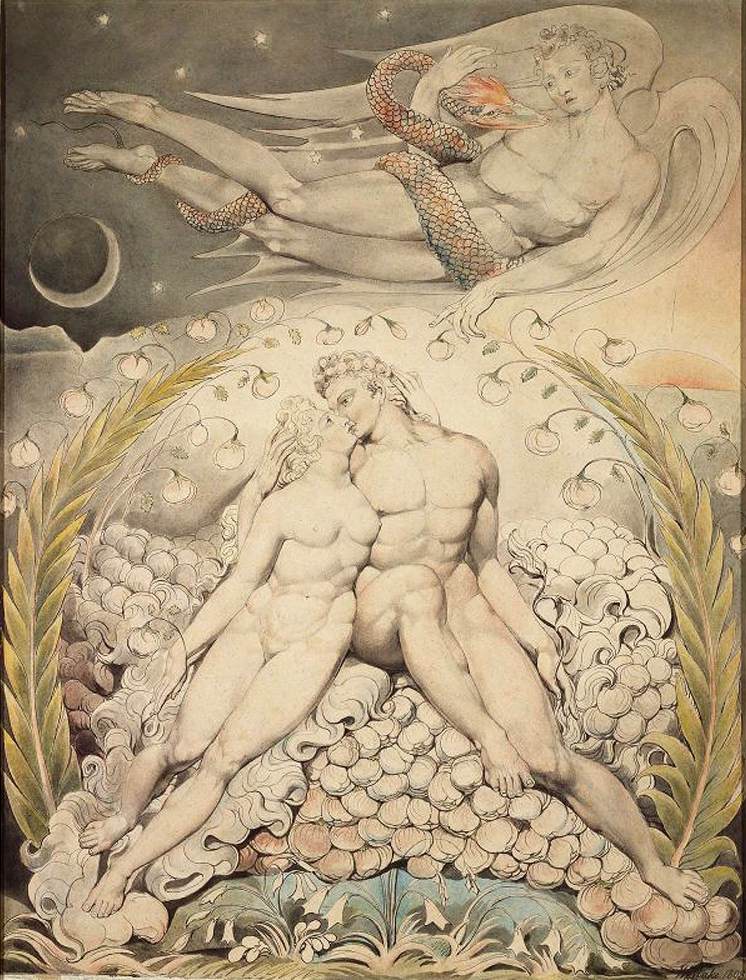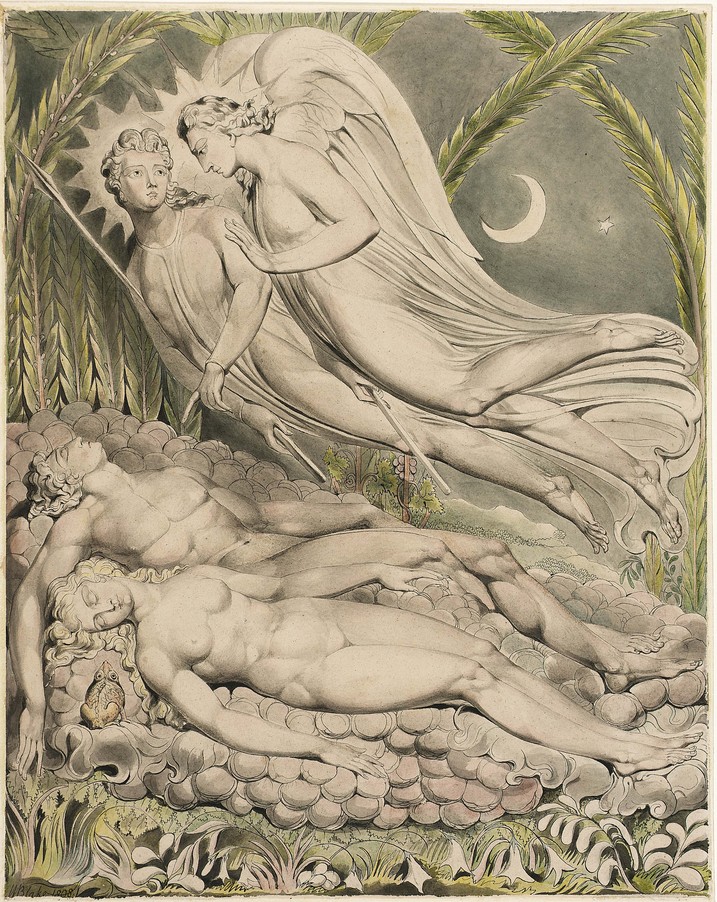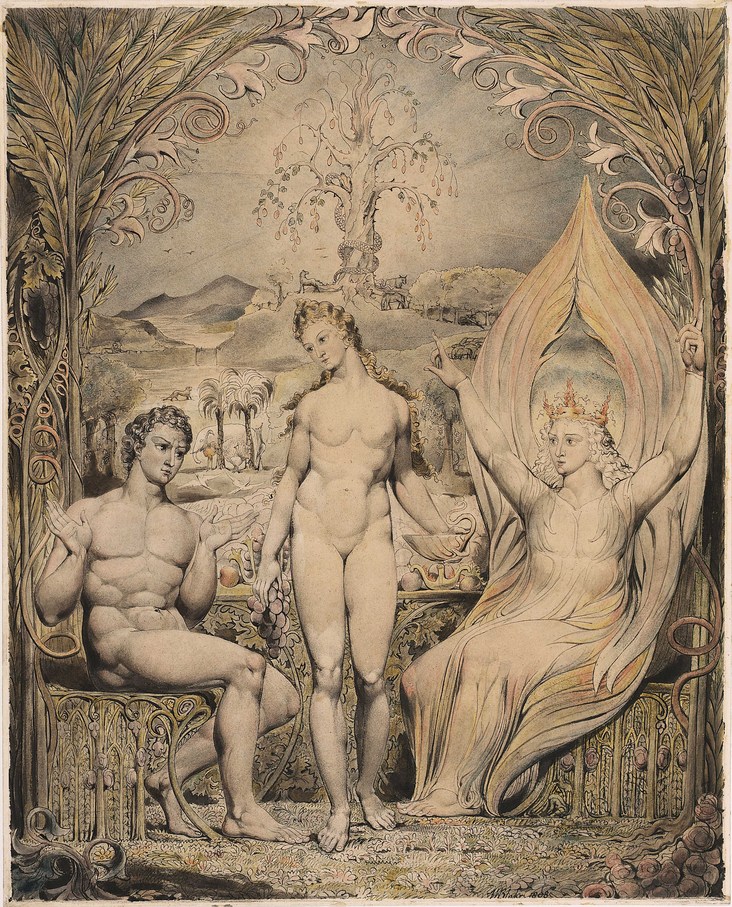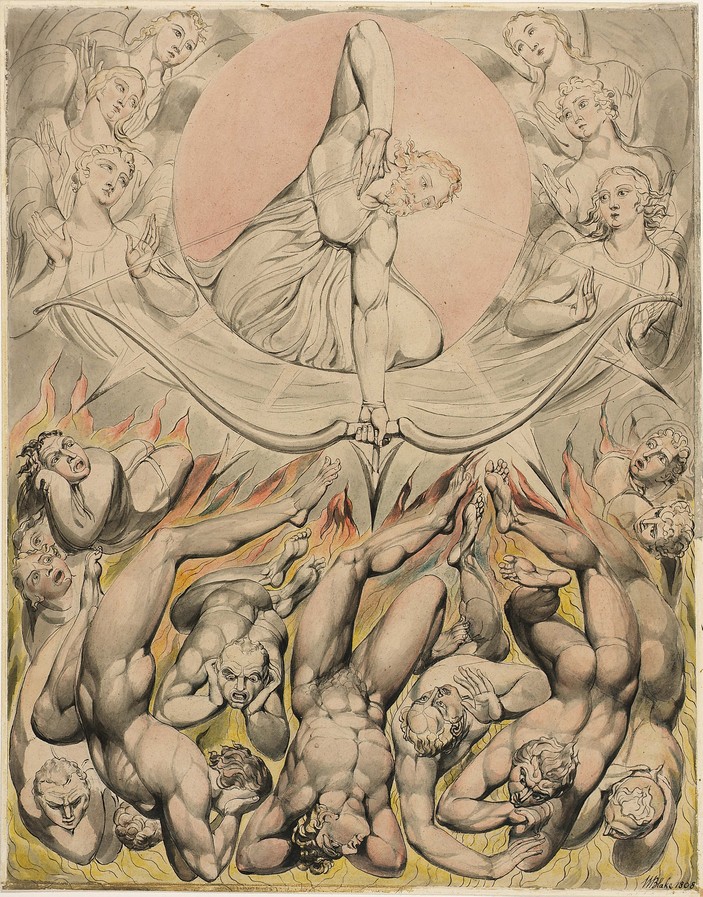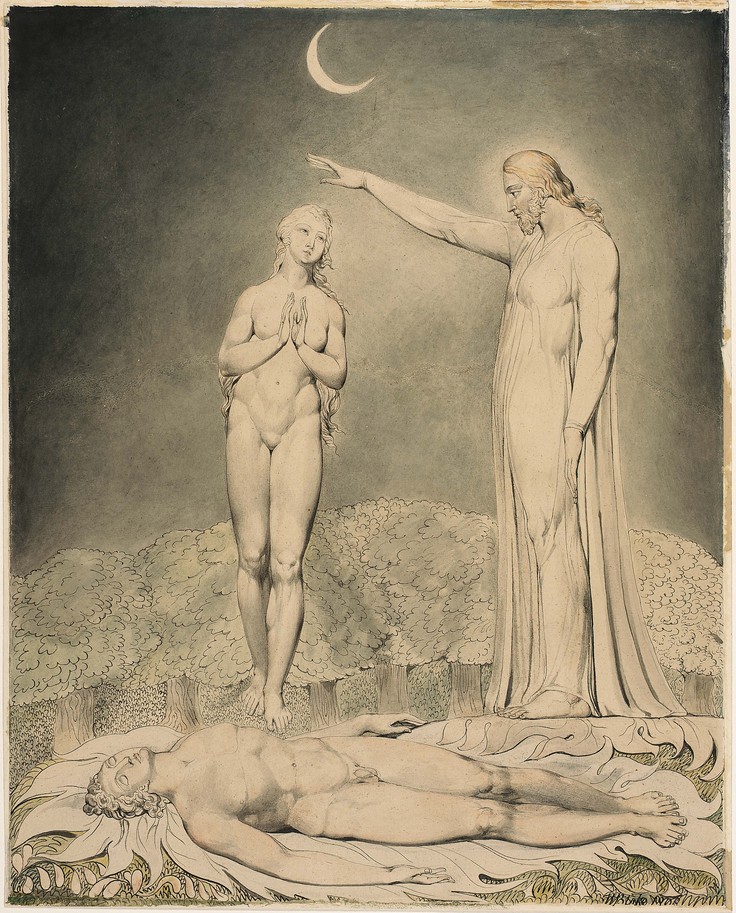 |
Wikipedia Commons
Illustrations to Milton's Paradise Lost
Illustration 2
Satan, Sin and Death: Satan Comes to the Gates of Hell
|
John Milton
Book 2, Beginning line 721
"For never but once more was wither like
To meet so great a foe. And now great deeds
Had been achieved, whereof all Hell had rung,
Had not the snaky Sorceress, that sat
Fast by Hell-gate and kept the fatal key,
Risen, and with hideous outcry rushed between.
Oh father, what intends thy hand, she cried,
Against thy only son? What fury, Oh son,
Possesses thee to bend that mortal dart
Against thy father's head? And know'st for whom? ...
T' whom thus the portress of Hell-gate replied:
Hast thou forgot me, then; and do I seem
Now in thine eye so foul?, once deemed so fair
In Heaven, when at the assembly, and in sight
Of all the seraphim with thee combined
In bold conspiracy against Heaven's King,
All on a sudden miserable pain
Surprised thee, dim thine eyes and dizzy swum
In darkness, while thy head flames thick and fast
Threw forth, till on the left side opening wide,
Likest to thee in shape and countenance bright,
Then shining heavenly fair, a goddess armed,
Out of thy head I sprung. Amazement seized
All the host of Heaven; back they recoiled afraid
At first, and called me Sin, and for a sign
Portentous held me; but, familiar grown,
I pleased, and with attractive graces won
The most averse, thee chiefly, who, full oft
Thyself in me thy perfect image viewing,
Becam'st enamored; and such joy thou took'st
With me in secret that my womb conceived
A growing burden.
...
Pensive here I sat
Alone; but long I sat not, till my womb,
Pregnant by thee, and now excessive grown,
Prodigious motion felt and rueful throes.
At last this odious offspring whom thou seest,
Thine own begotten, breaking violent way,
Tore through my entrails, that, with fear and pain
Distorted, all my nether shape thus grew
Transformed: but he my inbred enemy
Forth issued, brandishing his fatal dart,
Made to destroy. I fled, and cried out Death!"
Blake's second illustration to Paradise Lost shows what has been called the 'Unholy Trinity.' Satan, Sin and Death are pictured at the Gate of Hell as Satan tries to exit hell on his journey to disrupt God's intention to create a new level of being called 'man.' Being unwilling to come under the dominion of God, Satan has undertaken to oppose God by launching an attack on man. At the gate of hell Satan encountered two beings whom he did not recognize. Sin was a woman, partly beautiful and alluring, partly grotesque and repelling. Death was an armed and menacing being, although without form or substance. Sin and Death were children of Satan whose conception was so dreadful that Satan had erased it from his memory. When they were identified to Satan, the gate was unlocked and he was allowed to pass out through the Gate of Hell in order to continue on his path to menace the newly created earthly beings.
Milton's scenario did not originate in the Bible. In the book of Genesis, the entry of Death into the world was the result of the fall of Eve and Adam. They were expelled from Eden to prevent them from eating the fruit of the Tree of Life which would have granted Eternal life. Their fate instead would be to return to the earth from which they were made.
The first mention of sin occurs later in Genesis in conjunction with Cain's gift being unacceptable to God. There is no mention of Satan in the book of Genesis.
Genesis 3
[19] In the sweat of thy face shalt thou eat bread, till thou return unto the ground; for out of it wast thou taken: for dust thou art, and unto dust shalt thou return.
...
[22] And the LORD God said, Behold, the man is become as one of us, to know good and evil: and now, lest he put forth his hand, and take also of the tree of life, and eat, and live for ever:
[23] Therefore the LORD God sent him forth from the garden of Eden, to till the ground from whence he was taken.
[24] So drove out the man; and he placed at the east of the garden of Eden Cherubims, and a flaming sword which turned every way, to keep the way of the tree of life.
Blake refused to see the physical body made from dust as the true humanity. The death of the body was a release to the Life Eternal. Eternal Death was life on earth in as far as it was lived without consciousness of the Divine.
That which prevented man from living Eternally, although confined to earth, was his Selfhood, Spectre or Satan. It's origin was mental when he first conceived of a distant, punishing God whose love was exclusive. It was not sin which alienated man from God. It was his inability to experience God as good, loving and accessible.
Jerusalem, Plate 4, (E 146)
"Of the Sleep of Ulro! and of the passage through
Eternal Death! and of the awaking to Eternal Life."
Milton, Plate 14 [15], (E 108)
"I in my Selfhood am that Satan: I am that Evil One!
He is my Spectre! in my obedience to loose him from my Hells
To claim the Hells, my Furnaces, I go to Eternal Death.
And Milton said. I go to Eternal Death! Eternity shudder'd
For he took the outside course, among the graves of the dead
A mournful shade. Eternity shudderd at the image of eternal death
Then on the verge of Beulah he beheld his own Shadow;
A mournful form double; hermaphroditic: male & female
In one wonderful body. and he enterd into it
In direful pain for the dread shadow, twenty-seven-fold
Reachd to the depths of direst Hell, & thence to Albions land:
Which is this earth of vegetation on which now I write,"
